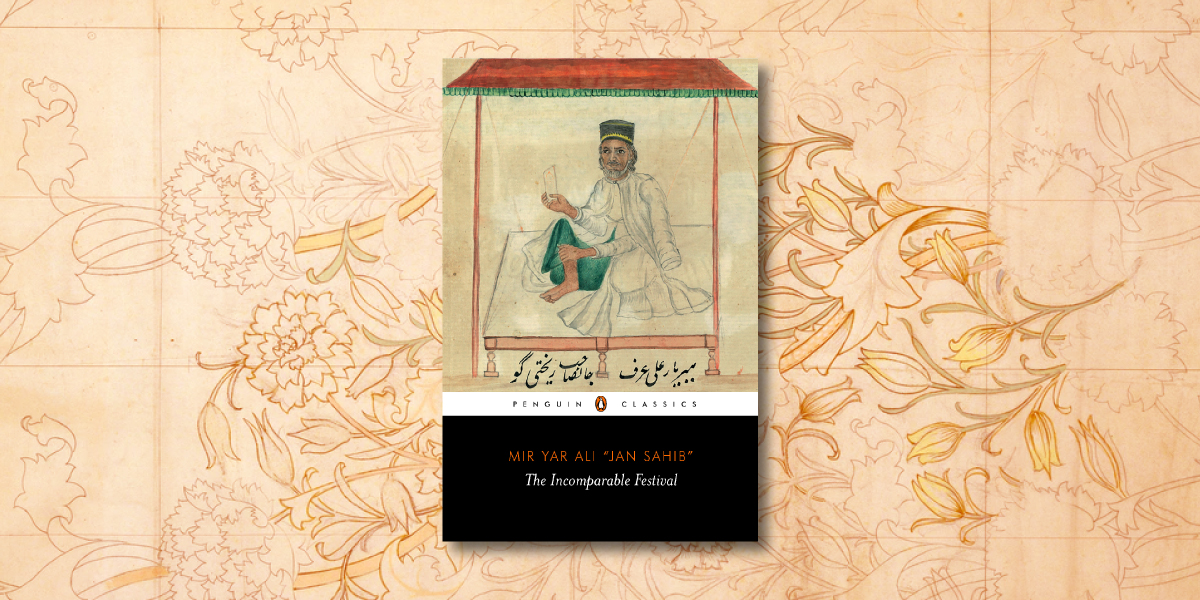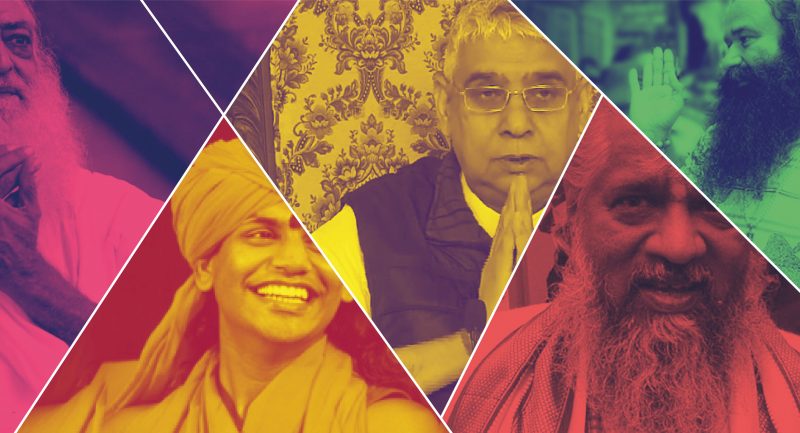
The Incomparable Festival (Musaddas Tahniyat-e-Jashn-e-Benazir) by Mir Yar Ali (whose pen name was Jan Sahib) is a little-known but sumptuous masterpiece of Indo-Islamic literary culture, presented here for the first time in English translation. This extended poem celebrates the royal festival popularly called jashn-e-benazir(the incomparable festival), inaugurated in 1866 by the Nawab Kalb-e-Ali Khan (r. 1865-87) with the aim of promoting art, culture and trade in his kingdom at Rampur in northern India. The task of commemorating the sights and wonders of the festival was given to the hugely popular writer of rekhti verse, that tart and playful sub-genre of the ghazal, reflecting popular women’s speech, of which Jan Sahib was one of the last practitioners.
The poem is a world album depicting various classes on the cusp of social upheaval ranging across legendary khayal singers, percussionists, and instrumentalists, courtesans, boy-dancers, poets, storytellers (dastango) and reciters of elegies (marsiyago). It brings to light their culinary tastes, artisanal products, religious rituals and beliefs, and savoury idioms, delineating identities of caste and gender in early modern society.
Read on to step into another, more colourful world from the past and immerse yourself in the chaotic, prismatic brilliance of the jashn-e-benazir.
A wine-girl from Aminabad, to Rampur have I come.
I am the only one whom his presence considers
welcome.
As for the others, on my appearance their allure has
become—
The difference between hellfire and light, O sweet
kingdom!
May he shower me with bounty every year and always!
The nameworthy Nawab may he survive always!
[31]
The train of us wine-girls will always be the rarest.
To the seat in the royal crimson pavilion we are nearest.
With hookahs made of gold and silver are we blest.
Sending blessings upon the rich, puff away the humblest.
We charge two gold coins for one fill of the hookah.
They come here to smoke, from the rajah to the fellah.
[32]
How well their stalls the moneychangers have decorated!
Gold and silver ornaments on sheets lie uncounted.
Without a fear of thieves, they are happily exhibited.
Heaps of rupee and gold coins lie everywhere deposited.
They are eager to raise loans of pice and cowries.
‘Come!’ they holler if you want to change your monies.
[33]
There the jewellers’ shops are, about which here’s the
statement:
Weighing precious stones, Mr Ruby-Pearls makes an
assessment.
Two brokers he has but their partnership causes some
bafflement:
Emerald says to diamond, about our value how can
there be agreement?
Madams Nose-Ring and Ruby some jewels have they
bought.
With the munificence of His Highness, gratis have they
got.
[34]
The drapers have their shops so well-carpeted,
That the satin sky observing them is impressed.
Such pieces of brocades and damask are on display
spread!
And bundles of golden lace lie about unwrapped.
All the fairgoers, whether from near or far, declare:
Pieces of muslin embroidery spread around a glare.
[35]
The status of each retailer is told by his ware.
All his ware from home is brought here to the fair.
At throwaway rates, a fixed price is tagged nowhere.
He doesn’t have to ask: how many would you care?
Well, when the nameworthy Nawab is recompensing,
What shopkeeper would not make a killing!
[36]
Abundance at no price is the fair’s condition.
A player beg for alms? That is out of the question.
With a smile on their face, each player shows perfection.
The prince is a connoisseur and they’re sure of his
appreciation.
The wheel of heaven stops with their magical tricks,
Turning a hide into a cat, and other feather-into-a-
pigeon tricks.









